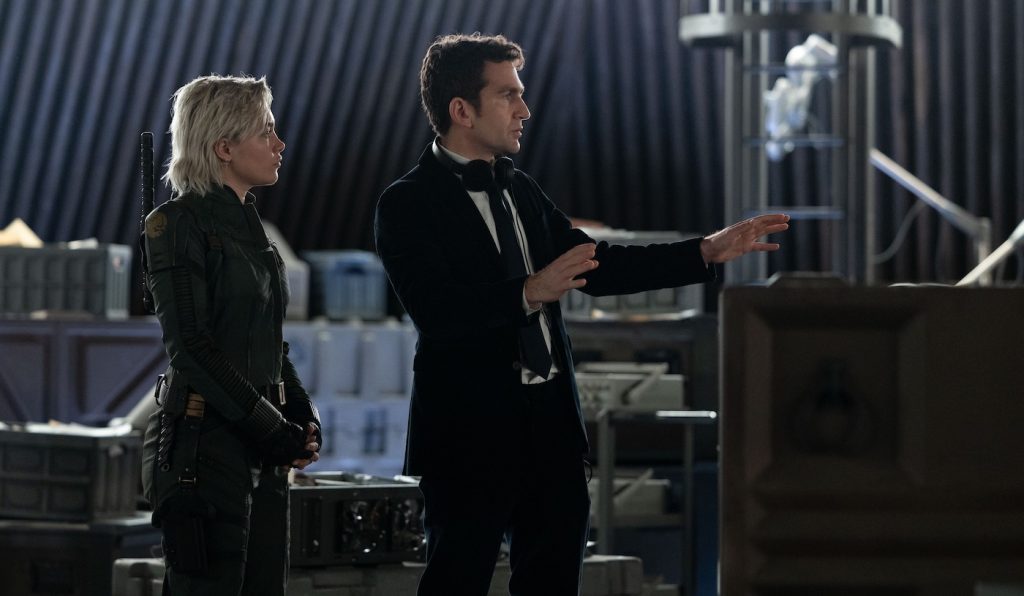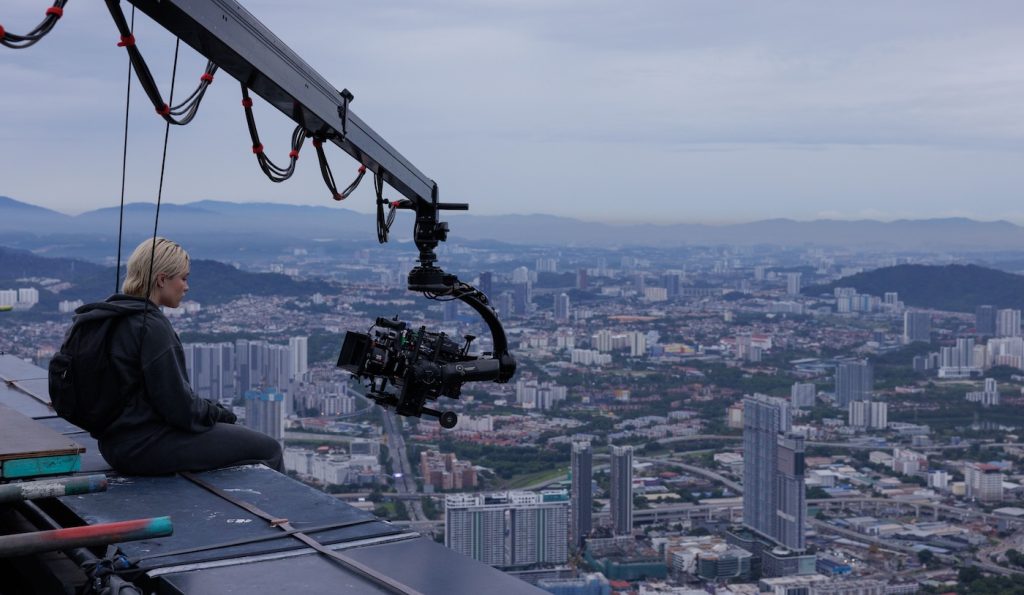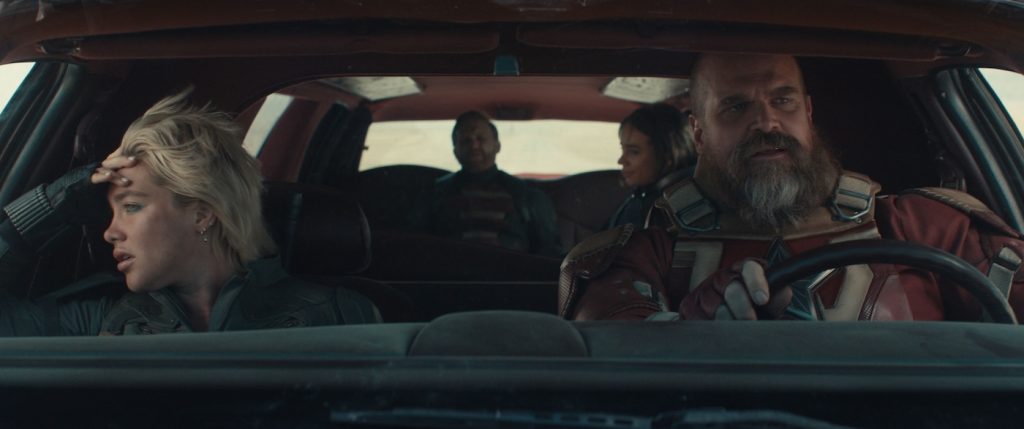“Thunderbolts*” Director Jake Schreier: From “Beef’s” Parking Lot Rage to Superhero Trauma
With critics praising Thunderbolts* ahead of its May 2 release as something decidedly new (and according to its Rotten Tomatoes score, decidedly fresh) in the MCU, director Jake Schreier has opened up the aperture on how he approached his Marvel debut. Schreier is a seasoned, respected indie helmer with a string of critically acclaimed titles to his name. After launching his career with the Sundance hit Robot & Frank in 2012 and following that up with his well-received studio film Paper Towns in 2015, Schreier dabbled in oddball but respected TV series (like Lodge 49) and helmed intriguing music videos for stars like Kendrick Lamar and Haim.
Then came his collaboration with Lee Sung Jin on Jin’s deliciously twisted, Emmy-winning Netflix series Beef. Ali Wong and Steven Yeun led the series as star-crossed Angelenos who escalate a parking lot mishap into an existential feud that takes them both to the brink of madness and death. The show was sensational, blending pitch black comedy with a deep, unflinching look at mental health, and it’s in Beef that we can glimpse the core protein that has pleasantly surprised critics about Thunderbolts*.
Schreier and his creative team made mental health the central issue of their epic antihero team-up movie, taking a page from Beef‘s fearless approach to its central character’s jaded, wounded psyches. The Thunderbolts* (the asterisk means, by the way, that “the Avengers aren’t available”) are led by Florence Pugh’s Yelena Belova, who, along with Bucky Barnes/Winter Soldier (Sebastian Stan), John Walker/U.S. Agent (Wyatt Russell), Alexei Shostakov/Red Guardian (David Harbour), Ava Starr/Ghost (Hannah John-Kamen), and Antonia Dreykov/Taskmaster (Olga Kurylenko) are cornered in a death trap set by the triple agent Valentina Allegra de Fontaine (Julia Louis-Dreyfus), which has the side effect of forcing them to team up to confront their pasts and become a cohesive, or at least functionally collaborative, fighting force. Their pasts and their presents have all been shaped by their particular battles with depression, grief, and innumerable founts of pain. The film’s big bad is Lewis Pullman’s Sentry/The Void, a villain who is given depth and complexity in his own right.
Speaking with The Hollywood Reporter, Schreier explained that the Thunderbolts* creative team made a conscious effort to infuse some of that Beef magic into their film.
“With Beef as our North Star, we just really believed that there was an opportunity to tell a story about that internality and still have a lot of comedy and action for something that feels big and universal,” Schreier tells The Hollywood Reporter. “It was always Sonny’s [Beef creator Lee Sung Jin] idea that these kinds of stories are not niche anymore, and even if it feels odd to have a summer blockbuster with that at its heart, it can work and it can make sense.”

In the marketing run-up to Thunderbolts* release, Marvel didn’t shy away from its indie bonafides. Star Florence Pugh said that making the film felt like a “bad ass indie, A24-feeling assassin movie.” Schreier assembled a team of seasoned creative talent who all had a connection to the indie world. Lee Sung Jin helped shape the script, and then The Bear‘s Joanna Calo came in during production to fine-tune it (Marvel veteran Eric Pearson got the ball rolling with the first draft). Folks from Beef and a slew of critically acclaimed A24 films filled out the ranks, including Beef production designer Grace Yun, The Green Knight cinematographer Andrew Droz Palermo, Minari editor Harry Yoon, and Everything Everywhere All At Once composer Son Lux.
“A close personal friend struggles with [depression], and I mapped Sentry’s arc off of a lot of things that he’s experienced,” Schreier told THR. “If you are going to tell a story about something like this, the last thing we want for anyone that struggles, including myself, with what the characters are going through is to feel like we’re being reductive about it or that we’re simplifying it or that we’re saying that it can be even solved. It’s more about the idea that you can bear it with others, but it’s not going to go away.”

With Marvel announcing the cast for Avengers: Doomsday in an unprecedented, five-hour-long reveal in late March that had millions of people looking at a live-stream of chairs, the superhero fatigue theory seems to be falling apart. What people want and have always wanted are good, original movies (even movies based on comic book characters can feel original). This has been evident in the gangbusters response to Ryan Coogler’s sensational original film Sinners. Coogler is, of course, an MCU alum, and it’s apparent in the excitement around Schreier’s Thunderbolts* that audiences are eager to see what an MCU film that takes on new themes in new and interesting ways, while still maintaining its superhero cred by being led by maladjusted costumed vigilantes with powers the rest of us could only dream of.

“Enough people can relate to that now that it doesn’t feel like you’re making something small,” Schreier told THR about the film’s mental health focus. “And then the rest is these actors really bringing themselves to it and finding their own way into it. For me, a close personal friend struggles with this, and I mapped Sentry’s arc off of a lot of things that he’s experienced. So, if everyone involved makes it personal, then I think you can really go far.”
Now that the reviews are out, it looks like Schreier and his cast and crew might be going far. While that asterisk in the title tells us it’s still a little too early to assemble the Avengers, a soulful, searching film about the struggles of the off-brand Avengers looks like exactly what the MCU needs.
Featured image: (L-R): Ghost (Hannah John-Kamen), Taskmaster (Olga Kurylenko), John Walker (Wyatt Russell), Bucky Barnes (Sebastian Stan), Alexei Shostakov/Red Guardian (David Harbour), and Yelena Belova (Florence Pugh) in Marvel Studios’ THUNDERBOLTS*. Photo courtesy of Marvel Studios. © 2024 MARVEL.



